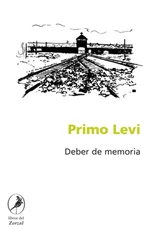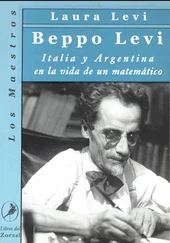We know that we will have difficulty in being understood, and this is as it should be. But consider what value, what meaning is enclosed even in the smallest of our daily habits, in the hundred possessions which even the poorest beggar owns: a handkerchief, an old letter, the photo of a cherished person. These things are part of us, almost like limbs of our body; nor is it conceivable that we can be deprived of them in our world, for we immediately find others to substitute the old ones, other objects which are ours in their personification and evocation of our memories.
Imagine now a man who is deprived of everyone he loves, and at the same time of his house, his habits, his clothes, in short, of everything he possesses: he will be a hollow man, reduced to suffering and needs, forgetful of dignity and restraint, for he who loses all often easily loses himself. He will be a man whose life or death can be lightly decided with no sense of human affinity, in the most fortunate of cases, on the basis of a pure judgement of utility. It is in this way that one can understand the double sense of the term ‘extermination camp’, and it is now clear what we seek to express with the phrase: ‘to lie on the bottom’.
Häftling* : I have learnt that I am Häftling. My number is 174517; we have been baptized, we will carry the tattoo on our left arm until we die. (*prisoner)
The operation was slightly painful and extraordinarily rapid: they placed us all in a row, and one by one, according to the alphabetical order of our names, we filed past a skillful official, armed with a sort of pointed tool with a very short needle. It seems that this is the real, true initiation: only by ‘showing one’s number’ can one get bread and soup. Several days passed, and not a few cuffs and punches, before we became used to showing our number promptly enough not to disorder the daily operation of food-distribution; weeks and months were needed to learn its sound in the German language. And for many days, while the habits of freedom still led me to look for the time on my wristwatch, my new name ironically appeared instead, a number tattooed in bluish characters under the skin. Only much later, and slowly, a few of us learnt something of the funereal science of the numbers of Auschwitz, which epitomize the stages of destruction of European Judaism. To the old hands of the camp, the numbers told everything: the period of entry into the camp, the convoy of which one formed a part, and consequently the nationality. Everyone will treat with respect the numbers from 30,000 to 80,000: there are only a few hundred left and they represented the few survivals from the Polish ghettos. It is as well to watch out in commercial dealings with a 116,000 or a 117,000: they now number only about forty, but they represent the Greeks of Salonica, so take care they do not pull the wool over your eyes. As for the high numbers they carry an essentially comic air about them, like the words ‘freshman’ or ‘conscript’ in ordinary life. The typical high number is a corpulent, docile and stupid fellow: he can be convinced that leather shoes are distributed at the infirmary to all those with delicate feet, and can be persuaded to run there and leave his bowl of soup ‘in your custody’; you can sell him a spoon for three rations of bread; you can send him to the most ferocious of the Kapos to ask him (as happened to me!) if it is true that his is the Kartoffelschalenkommando, the ‘Potato Peeling Command’, and if one can be enrolled in it.
In fact, the whole process of introduction to what was for us a new order took place in a grotesque and sarcastic manner. When the tattooing operation was finished, they shut us in a vacant hut. The bunks are made, but we are severely forbidden to touch or sit on them: so we wander around aimlessly for half the day in the limited space available, still tormented by the parching thirst of the journey. Then the door opens and a boy in a striped suit conies in, with a fairly civilized air, small, thin and blond. He speaks French and we throng around him with a flood of questions which till now we had asked each other in vain.
But he does not speak willingly; no one here speaks willingly. We are new, we have nothing and we know nothing; why waste time on us? He reluctantly explains to us that all the others are out at work and will come back in the evening. He has come out of the infirmary this morning and is exempt from work for today. I asked him (with an ingenuousness that only a few days later already seemed incredible to me) if at least they would give us back our toothbrushes. He did not laugh, but with his face animated by fierce contempt, he threw at me ‘Vous n’êtes pas à la maison.’ And it is this refrain that we hear repeated by everyone: you are not at home, this is not a sanatorium, the only exit is by way of the Chimney. (What did it mean? Soon we were all to learn what it meant.)
And it was in fact so. Driven by thirst, I eyed a fine icicle outside the window, within hand’s reach. I opened the window and broke off the icicle but at once a large, heavy guard prowling outside brutally snatched it away from me. ‘Warum?’ I asked him in my poor German. ‘Hier ist kein warum’ (there is no why here), he replied, pushing me inside with a shove.
The explanation is repugnant but simple: in this place everything is forbidden, not for hidden reasons, but because the camp has been created for that purpose. If one wants to live one must learn this quickly and well:
‘No Sacred Face will help thee here! it’s not
A Serchio bathing-party…’
Hour after hour, this first long day of limbo draws to its end. While the sun sets in a tumult of fierce, blood-red clouds, they finally make us come out of the hut. Will they give us something to drink? No, they place us in line again, they lead us to a huge square which takes up the centre of the camp and they arrange us meticulously in squads. Then nothing happens for another hour: it seems that we are waiting for someone.
A band begins to play, next to the entrance of the camp: it plays Rosamunda, the well known sentimental song, and this seems so strange to us that we look sniggering at each other; we feel a shadow of relief, perhaps all these ceremonies are nothing but a colossal farce in Teutonic taste. But the band, on finishing Rosamunda, continues to play other marches, one after the other, and suddenly the squads of our comrades appear, returning from work. They walk in columns of five with a strange, unnatural hard gait, like stiff puppets made of jointless bones; but they walk scrupulously in time to the band.
They also arrange themselves like us in the huge square, according to a precise order; when the last squad has returned, they count and recount us for over an hour. Long checks are made which all seem to go to a man dressed in stripes, who accounts for them to a group of SS men in full battle dress.
Finally (it is dark by now, but the. camp is brightly lit by headlamps and reflectors) one hears the shout ‘Absperre!’ at which all the squads break up in a confused and turbulent movement. They no longer walk stiffly and erectly as before: each one drags himself along with obvious effort. I see that all of them carry in their hand or attached to their belt a steel bowl as large as a basin.
We new arrivals also wander among the crowd, searching for a voice, a friendly face or a guide. Against the wooden wall of a hut two boys are seated on the ground: they seem very young, sixteen years old at the outside, both with their face and hands dirty with soot. One of the two, as we are passing by, calls me and asks me in German some questions which I do not understand; then he asks where we come from. ‘Italien,’ I reply; I want to ask him many things, but my German vocabulary is very limited.
Читать дальше












